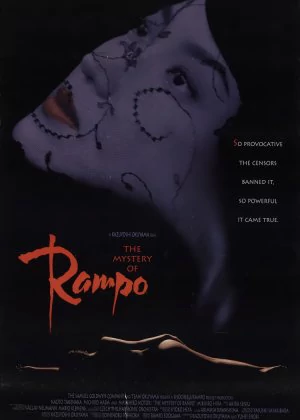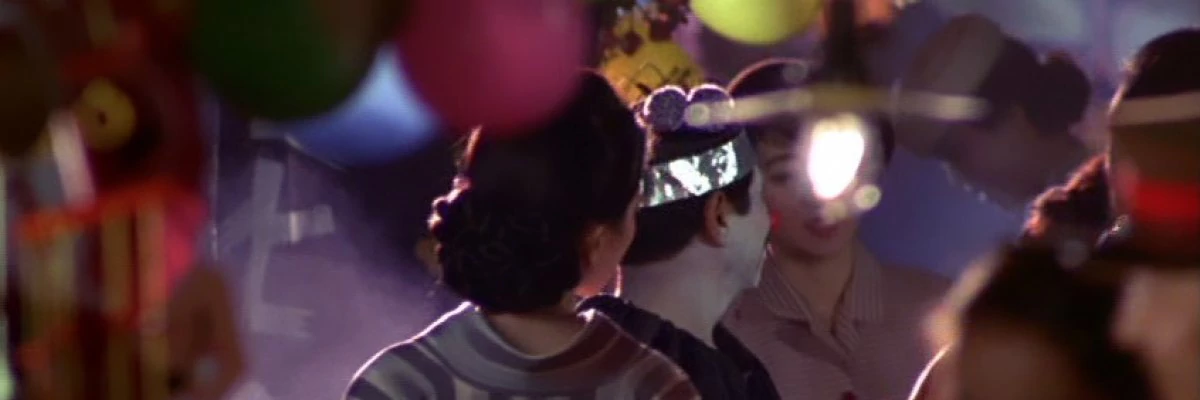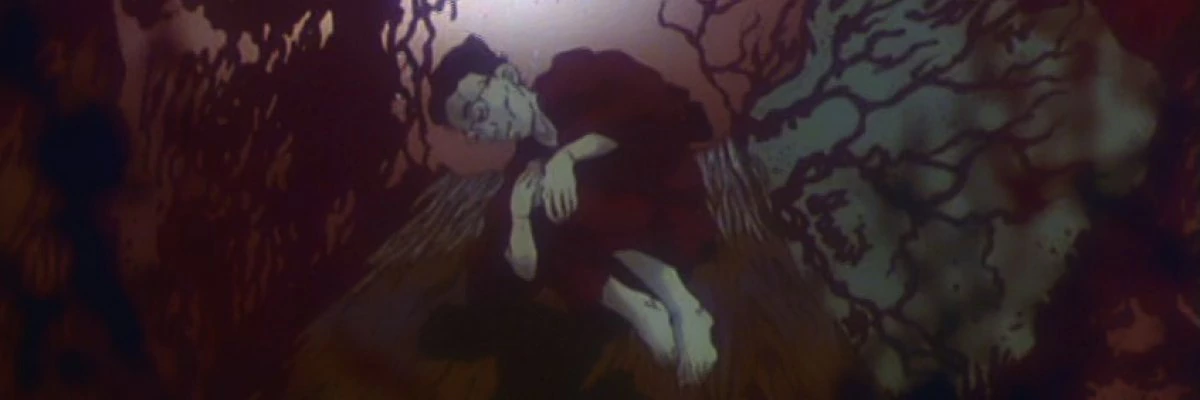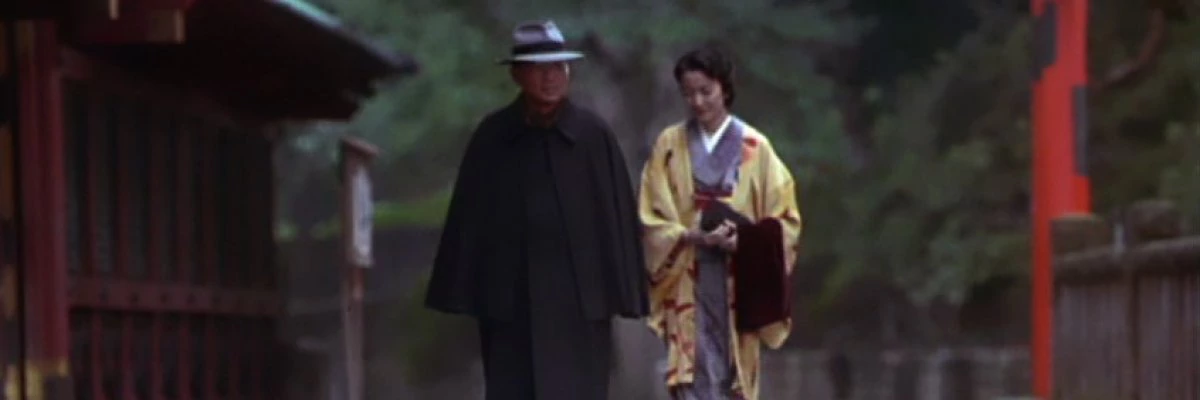The Mystery of Rampo

Edogawa Rampo isn't just one of Japan's most essential writers, he's also a godsend for directors who are looking to do more warped horror adaptations. While many of his stories have been adapted into feature films and/or horror anthologies, there aren't that many films that put the spotlight on the man himself. The Mystery of Rampo is a welcome exception, a film that pays homage to the writer by putting him into a story he himself could've written. I really liked the film when I first watched it, but that was almost 15 years ago. Time to revisit it and see how and if it held up after all this time.

Edogawa Rampo was a big fan of Edgar Allen Poe (his pen name is a pseudonym derived from Poe) and that shines through in his writing. Rampo's work has a dark, slightly cynical and somewhat perverse edge to it, not ideal for big commercial horror franchises, but a welcome challenge for directors who want to get a little weird. It's no surprise then that through the years he inspired people like Tsukamoto (Gemini), Wakamatsu (Caterpillar), Teruo Ishii (Horrors of Malformed Men) and Akio Jissôji Rampo Noir, though his influence goes beyond mere adaptations (think Tsuruta's Orochi - Blood or Sato's Kasane).
The Mystery of Rampo surely isn't the first film to place an artist inside his art, but in Rampo's case it makes for a very intriguing premise. It's probably best to not expect a full-blown, classic biography, instead the film presents a Rampo-like mystery where we get smaller glimpses of the writer's personality. There are no deep dives into his character, nor any revealing insights into his life, but as we follow him along we do get a sense of some of his peculiarities and traits. I have no doubt there's a little artistic freedom involved here, but as the directors worked long and hard to get this film made, I take it they at least tried to stay close enough to the real deal.
When Rampo's latest book doesn't pass the censors, he decides it might be better to take some time off. Right when he wants to leave, his agent shows him a news article detailing the case of a woman who has murdered her husband. The case is a perfect match with Rampo's latest story, which tickles his curiosity. He sets out to meet the woman, who is running a small antique shop. It is a fruitful meeting and Rampo is so inspired that he immediately starts work on an expansion of his banned book. The story is so powerful that it threatens to consume Rampo's mind.

The film starts off with a lovely piece of animation that illustrates the plot of Rampo's banned book. It then shifts to live action, but without losing its taste for the surreal. The cinematography is very stylish, with a strong classical feel to it. The Mystery of Rampo doesn't come off as old-fashioned though, as Okuyama loves to shake things up quite regularly, with odd camera angles, fast editing and some disjointed visual effects. It creates an interesting mix of old and new that comes to define the film. While some of the effects are starting to show their age, the overall aesthetic holds everything together.
And then there's the score. While rather oldskool (the entire soundtrack was performed by the Czech Philharmonic Orchestra), composer Akira Senju created one of my favorite film themes ever. I'm not quite sure what it is about Love Theme for Rampo that I love so much, but with just a few simple notes and harmonies it creates such a dreamy, warm and overpowering mood that it steals every scene it's used in. Several variations of the theme appear throughout, and every single time the music immediately elevates the film. A perfectly wonderful score that does everything by the numbers, but still manages to floor me.
As for the cast, one name jumps out. Naoto Takenaka is one of the most underappreciated actors in Japanese cinema, so it's nice to see him get some much-deserved time in the spotlights. From live action to anime (he has an amazing voice), from the sleaziest pinku to the most high-profile arthouse films, Takenaka is truly omnipresent (280+ acting credits and counting), but he rarely lands a lead role. Don't ask me why, as I'm a big fan myself. The rest of the cast is on point too, with Michiko Hada putting in a commendable performance and the likes of Kirin Kiki and Ittoku Kishibe showing up in some remarkable cameos.

The Mystery of Rampo was a pretty troubled production, with Okuyama appointing Rintaro Mayuzumi to direct the film, then jumping in later on and redoing about 40% of the entire project to make it come off more uncomfortable and mysterious, in line with Rampo's writing. Such interventions rarely turn out well, but looking at all the changes Okuyama made it seems that he actually saved the film. Mayuzumi's cut would've been way safer and more traditional, not at all what you'd want from a Rampo-inspired film. A rare exception to the rule.
The Mystery of Rampo is a wonderful introduction into the slightly warped, perverted and ominous world of Edogawa Rampo, a film appealing to both seasoned fans and interested novices. With its wonderful cinematography, outstanding score and enigmatic lead, Okuyama serves a puzzling trip through the mysterious mind of one of Japan's most prestigious horror writers. Okuyama stuck his neck out for this film, and his gamble paid off. It's a shame to see The Mystery of Rampo pass by relatively unnoticed, so if the opportunity presents itself, make sure to check this one out.